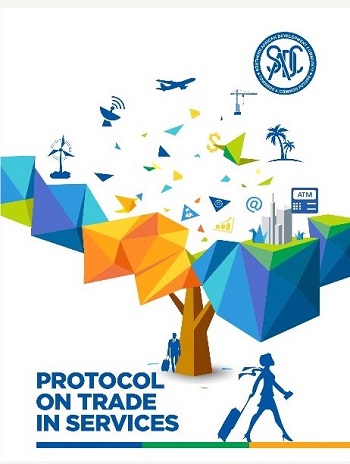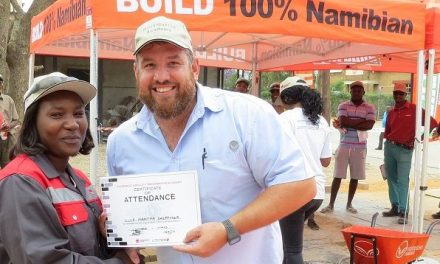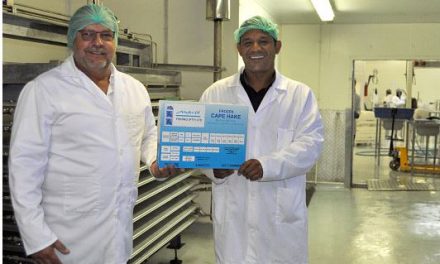
SADC Protocol on Trade in Services enters into force

The Southern African Development Community (SADC) Protocol on Trade in Services entered into force on 13 January, SADC Executive Secretary Elias Magosi recently announced.
Namibia and 10 other SADC Member States have deposited instruments of ratification while five Member States, Angola, Democratic Republic of Congo, Madagascar and United Republic of Tanzania plus the Union of Comoros, are yet to ratify the Protocol.
The SADC Protocol provides the framework for a preferential trade agreement covering all commercial and tradeable services in any services sector.
The Protocol aims to encourage increased intra-regional trade in services through the gradual removal of unnecessary or burdensome regulation affecting the cross-border supply of services within the SADC region, a process known as progressive liberalisation. Barriers to trade in services are found in the way that nations regulate services, e.g. through a country’s banking or transport laws, where measures may be found that limit the ability of foreign services suppliers to trade freely across borders, or which discriminate against foreign service suppliers within the market place and distort competition in favour of domestic suppliers.
The Protocol offsets the general and specific obligations binding the ratifying or acceding Member States (referred to as “State Parties”) to grant each other preferential market access and non-discriminatory (“national”) treatment for SADC service suppliers. The State Parties guarantee to extend to all SADC State Parties the best conditions for trade that they grant to one SADC State Party or a non-State Party, including non-SADC countries.
In addition, State Parties guarantee that the same market access conditions for particular services and service suppliers, as set out in their accompanying sectoral commitments, will not be made more restrictive or discriminatory compared to their own “like” (comparable) domestic services and service suppliers.
The sectoral commitments, and any limitations thereto, are set out in national lists of commitments (similar to tariff schedules) for sectors that have been subject to negotiations. The lists of commitments differ between individual State Parties, reflecting different levels of national development of the services sector and regulatory capability and/or experience.
The first round of such sectoral negotiations was concluded in 2019 covering communication, financial, tourism, transport, construction and energy-related services. A second round of negotiations was approved by SADC Trade Ministers in 2021, covering regional trade in the remaining sectors, namely: business services; distribution; educational, health and social services; environmental services; and recreational, cultural and sporting services.
The adopted first round Lists of Commitments/Schedules comprise of commitments in the six priority sectors by all Member States except for outstanding schedules by Mozambique (in relation to energy-related services), Madagascar (construction and energy-related services) and Angola and Comoros – yet to become party to the Protocol (all six sectors). Member States have agreed to negotiate the outstanding offers in the six sectors during the second round of negotiations.
The adopted commitments have also been supported by Protocol Annexes containing some common trade-related regulatory principles in some sectors aimed at underpinning conditions for market access and national treatment. The Annexes, which are equally binding on each State Party, build on experience in the World Trade Organization (WTO) as well as other preferential or regional trade agreements covering trade in services.
Following the entry into force of the Protocol, both the adopted Lists of Commitments covering the six priority sectors and the Annexes became enforceable as of 13 January 2022. Noteworthy, the Protocol provides for denial of benefits to business enterprises of non-State Parties (i.e. including SADC Member States that are yet to ratify to the Protocol), hence services and services suppliers of the Member States that are yet to ratify/accede to the Protocol remain ineligible to its benefits. This means that even though the adopted Lists of Commitments in the first round include commitments by the DRC, Madagascar and the United Republic of Tanzania, these commitments will become effective only when these Member States ratify the Protocol and deposit their Instruments of Ratification with the SADC Secretariat.
The road to reach this point has been a long one. Originally, SADC Heads of State and Government agreed in 2000 to create a preferential trade agreement covering the services sector, building on the Protocol on Trade signed in 1996. Initially expected to form an Annex to the Protocol on Trade, it was recognised that a trade agreement on services would require a substantially different framework, just as it had in the WTO with the creation of the General Agreement on Trade in Services (GATS). Accordingly, negotiations on a stand-alone agreement on services trade began in 2006, based on the GATS framework. The resulting agreement, the Protocol on Trade in Services was opened for signature in 2012.
While in many cases the negotiated commitments in the six sectors reflect existing national laws and regulations, the binding nature of the commitments means that prospective services suppliers from the SADC region can enter other SADC markets safely reassured that the regulatory conditions for trade in services are legally enforceable and cannot be made more restrictive in the future. This is especially important for service suppliers interested in expanding cross-border trade or investing in a commercial presence in another State Party. Creating regulatory certainty through binding commitments and ensuring that SADC service suppliers can consult on local requirements through the Protocol’s transparency obligations is seen as making the conditions for trade and competition more attractive to potential traders and investors.
Welcoming the entry into force of the Protocol, Magosi said, “This Protocol, which has been long in its development, is a major new building block in the legal structures of SADC, and a vital complement to SADC’s regional trade agenda. Services account for more than 50% of GDP in most SADC Member States, and as well as being economically important in their own right account for an increasing share of value addition in the production of goods. I welcome its entry into force, urge those Member States that have yet to ratify it to do so and complete the SADC family of those who have, and encourage an ambitious outcome to the second round of negotiations that are now under way.”











































